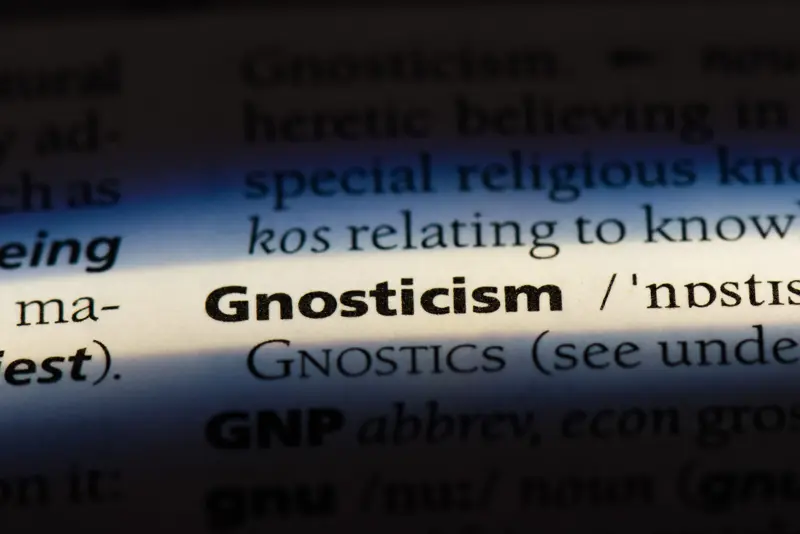Overview
Gnosticism is a heresy that originated in the early centuries of the Christian era. It teaches that salvation is attained not through faith in Christ, but through secret, mystical knowledge (gnōsis). At its core, Gnosticism presents a dualistic worldview, claiming that all matter is inherently evil and only the spirit is good.
As a result, it denies key biblical doctrines such as the goodness of creation and the true humanity of Jesus Christ, often claiming that He only appeared to have a physical body (Docetism). This heresy was strongly opposed by early Church Fathers like Irenaeus (Against Heresies) and formally rejected by the creeds of the Church.
Deviation from Truth
Gnosticism diverges sharply from biblical truth on several foundational doctrines:
Denial of the Goodness of Creation
Gnostics claim that the material world is corrupt and the product of an inferior, ignorant deity (often called the Demiurge), not the true God of Scripture.“And God saw everything that he had made, and behold, it was very good.” — Genesis 1:31 (ESV)
Rejection of the Incarnation
Gnosticism teaches that Christ could not have taken on real human flesh because matter is evil. This directly contradicts apostolic testimony.“By this you know the Spirit of God: every spirit that confesses that Jesus Christ has come in the flesh is from God.” — 1 John 4:2 (ESV)
“And the Word became flesh and dwelt among us.” — John 1:14 (ESV)A False Gospel of Secret Knowledge
Rather than proclaiming the gospel of grace, Gnostics promote a system of hidden wisdom accessible only to a spiritual elite.“I am astonished that you are so quickly deserting him who called you in the grace of Christ and are turning to a different gospel.” — Galatians 1:6 (ESV)
Gnosticism ultimately undermines the person and work of Christ, denies the authority of Scripture, and replaces divine revelation with subjective mysticism.
Biblical Response
The Bible offers a clear and compelling response to each major error of Gnosticism. Its teachings directly confront the distortion of creation, Christ’s nature, and the doctrine of salvation.
Scripture teaches that Jesus Christ is both fully God and fully man, and that salvation comes through grace by faith, not hidden insight. John 1:14 affirms, “The Word became flesh and dwelt among us,” directly contradicting Gnostic denials of the Incarnation. Paul declares in Colossians 2:9–10, “For in him the whole fullness of deity dwells bodily, and you have been filled in him,” showing that divinity and humanity coexisted in Christ without contradiction.
Furthermore, the gospel is not secret but publicly proclaimed (Romans 10:17; Acts 17:30). The Nicene Creed (325 AD) was formulated in part to reject similar errors by affirming Christ as “God from God, Light from Light, true God from true God… who for us and for our salvation came down from heaven… and was made man.”
Gnosticism’s claims are incompatible with the apostolic faith once delivered to the saints (Jude 1:3).
Lingering Influence
Though ancient Gnosticism was formally condemned by the early Church, its influence continues to persist in modern spiritual and cultural expressions. Today, we encounter echoes of Gnostic thought in the widespread emphasis on mystical experience and subjective spirituality. Popular phrases such as “follow your inner light,”“spiritual but not religious,” and “the divine spark within” reflect the same core idea that secret, inward enlightenment is superior to objective truth revealed by God.
These ideas encourage individuals to seek salvation or meaning through introspection and esoteric wisdom, rather than through the gospel of Jesus Christ.
Tragically, similar tendencies can also be found within certain corners of the Church. Some contemporary preachers and movements place more weight on private revelations, inner impressions, or so-called prophetic knowledge than on the clear teaching of Scripture. In these circles, Christ’s bodily resurrection, the goodness of the physical world, and the authority of the Bible may be downplayed or dismissed altogether, hallmarks of Gnostic ideology dressed in Christian language.

